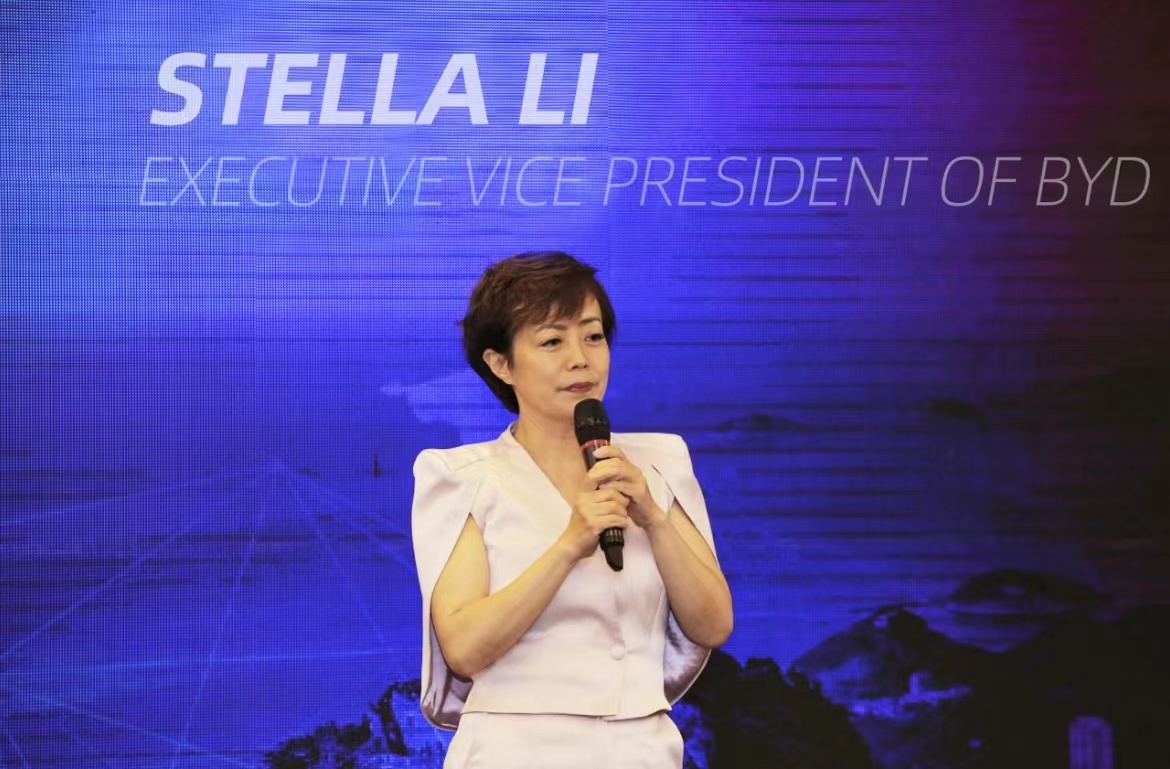Stella Li, a key figure at the Chinese behemoth BYD for 28 years, oversees the company’s operations in the Americas, including its investments in Brazil.
After China and Thailand, Brazil ranks third to host a BYD plant manufacturing hybrid and electric vehicles.
BYD plans to inaugurate three facilities in Bahia this October, previously housing the American car manufacturer Ford.
The total investment will be approximately R$3 billion (US$600 million).
This includes a plant that can manufacture 150,000 hybrid and electric vehicles annually.
The other two facilities will produce electric trucks and bus chassis and process lithium and iron phosphate, key battery components.
Shenzhen, BYD’s headquarters, is emblematic of China’s economic resurgence and the potential of the electric car industry.

The presence of green-plated electric vehicles is as common as the blue-plated gasoline cars in the city.
BYD recorded a revenue of US$61.7 billion in 2022, nearly doubling its 2020 revenue of US$33 billion.
The company employs over 600,000 individuals involved in various manufacturing sectors including cars, trains, trucks, batteries, chips, and even health equipment.
Their headquarters is interconnected with an aerial train system, showcasing the company’s capabilities.
In an interview with EXAME, Li discussed BYD’s strategy and the potential of the Brazilian market.
She highlighted the importance of public incentives to expand the green fleet.
During her visit to Brazil, she met President Lula, who expressed commitment to electrifying the nation’s fleet.
Li believes the electrification trajectory in Brazil will mirror China’s, where hybrid and electric vehicles constitute 30% of the fleet.
She emphasized the need for attractive vehicle offerings and government support for charging infrastructure.
Initially, the Bahia project is expected to generate 5,000 jobs.
Ethanol’s prominence in Brazil’s auto market will influence BYD’s fleet electrification strategy.
Li foresees a similar penetration to China, where 50% of the green fleet is purely electric and the remaining are hybrids.
However, in Brazil, these hybrids will utilize ethanol with flex technology. This development is a focus of BYD’s research in Brazil.
Regarding competition, while BYD supplies components to other manufacturers, they perceive them as partners, not competitors.
The aim is collective: promoting green vehicles. Li attributes BYD’s success to unwavering focus and determination, even in challenging times.

